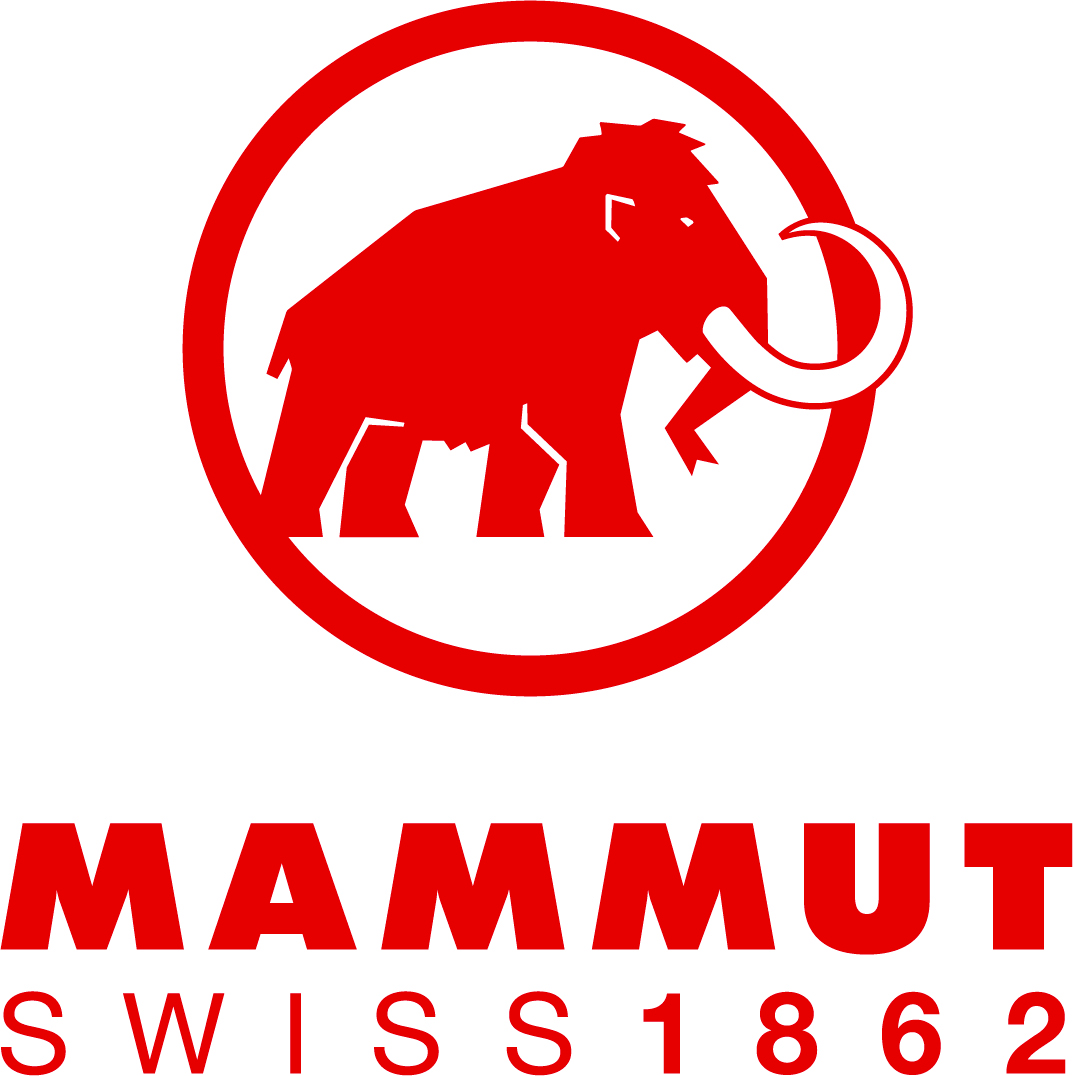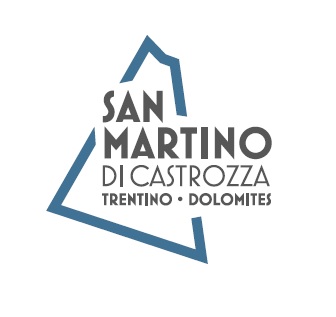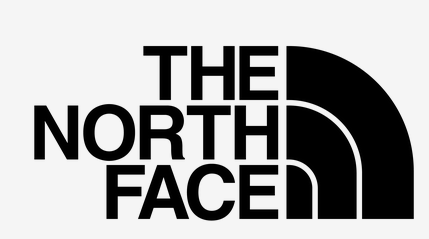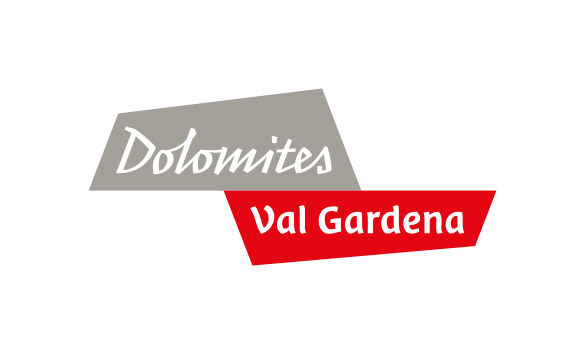 Il film VIVAN LAS ANTIPODAS vince la Genziana D’Oro al 60° TRENTOFILMFESTIVAL.
Il film VIVAN LAS ANTIPODAS vince la Genziana D’Oro al 60° TRENTOFILMFESTIVAL.
Rendiamo noti anche gli altri RICONOSCIMENTI 2012, assegnati alla 60^ edizione del TRENTOFILMFESTIVAL, completi delle motiviazioni della giuria internazionale:
La Giuria del 60° TrentoFilmFestival 2012 composta da:
Eliza Kubarska (Polonia/Poland)
Ramyata Limbu (Nepal)
Victor Boyarsky (Russia)
Hugh Purcell (Gran Bretagna/UK)
Mario Casella (Svizzera/Switzerland)
ha visionato dal 28 aprile al 2 maggio 2012 i 26 film in concorso e assegnato i seguenti Premi:
GRAN PREMIO CITTÀ DI TRENTO GENZIANA D’ORO /GOLD GENTIAN
La Giuria Internazionale ha deciso all’unanimità di conferire la Genziana d’Oro a un film documentario che è un indimenticabile omaggio alla Madre Terra nella sua diversità, maestosità e antichità. L’idea è ingegnosa, la realizzazione è piena di qualità artistiche e tecnicamente brillante. Il premio viene assegnato a Victor Kossakowski per
¡VIVAN LAS ANTIPODAS!
di/by Victor Kossakovsky (Germany/Holland/Argentina/Chile, 2011)
The Jury is unanimous in awarding the Gran Premio, a Gold Gentian,
to a film documentary that is an unforgettable ‘homage’ to Mother Earth, in her diversity, enormity and antiquity. The idea is ingenious, the realisation is artistically and technically brilliant. The prize is awarded to Victor Kossakowsky for
¡VIVAN LAS ANTIPODAS!
di/by Victor Kossakovsky (Germany/Holland/Argentina/Chile, 2011)
PREMIO DEL CLUB ALPINO ITALIANO – GENZIANA D’ORO AL MIGLIOR FILM DI ALPINISMO O MONTAGNA.
ITALIAN ALPINE CLUB PRIZE – GOLD GENTIAN: FOR THE BEST FILM ON MOUNTAINEERING OR MOUNTAINS
Nonostante l’alto livello dei film in questa categoria, la Giuria è stata unanime nell’attribuire la Genziana d’Oro per il miglior film di alpinismo ad un film che incarna la pura idea del free climbing. Vivere, sognare la scalata attraverso lo studio e la progettazione meticolosa, sino all’ultima coraggiosa ascesa; questo film dimostra che l’arrampicata libera non è soltanto uno sport ma un’arte creativa. Manolo spinge costantemente le sue capacità oltre i propri limiti, in un’opera profondamente legata alle Dolomiti. Il premio va a:
VERTICALMENTE DÉMODÉ
di/by Davide Carrari (Italy, 2012)
Despite the high level of films in this category, the Jury is unanimous in giving this Gold Gentian to a film that demonstrates the pure idea of free climbing. Living, even dreaming, of the climb through the meticulous planning to the final daring ascent, the film proves that rock climbing is not just sport but a creative art. The protagonist is Manolo, constantly pushing the limits of his skills and deeply attached to the mountains of this area. The film, of course, is:
VERTICALMENTE DÉMODÉ
di/by Davide Carrari (Italy, 2012)
PREMIO CITTÀ DI BOLZANO GENZIANA D’ORO AL MIGLIOR FILM DI ESPLORAZIONE O AVVENTURA.
CITY OF BOLZANO PRIZE – GOLD GENTIAN FOR THE BEST FILM ON EXPLORATION, OR ADVENTURE
Anche in questo caso la giuria ha deciso all’unanimità. Attraverso una narrazione ricca di sensibilità e un profondo legame stabilito con i nomadi di Ladakh, la Regista ha diretto un film di rara esplorazione umana, grazie al quale il pubblico può condividere le avventure dei nomadi e la loro battaglia senza speranza per difendere la loro vita e cultura sull’altipiano tibetano. Il premio della Città di Bolzano va a:
LA NUIT NOMADE
di/by Marianne Chaud (France, 2011)
Once again the Jury was unanimous in awarding this prize. Through sensitive storytelling and the deep connection she has established with the nomads in the Ladakh mountains, Marianne Chaud has directed a film of rare human exploration. The audience shares the adventures of the nomads as they fight a losing battle to maintain their traditional life at high altitude on the Tibetan plateau. The film is: LA NUIT NOMADE
di/by Marianne Chaud (France, 2011)
GENZIANA D’ARGENTO AL MIGLIOR CONTRIBUTO TECNICO-ARTISTICO
SILVER GENTIAN: FOR THE BEST ARTISTIC-TECHNICAL CONTRIBUTION
La maggioranza dei giurati, dopo una lunga discussione, ha deciso di premiare LA VIE AU LOIN
di Marc Weymuller (France, 2011) per le sue qualità poetiche e filosofiche.
By a majority decision and after much discussion the Jury awarded this prize to
LA VIE AU LOIN by Marc Weymuller (France, 2011) for its philosophical and poetic qualities.
MENZIONE SPECIALE – CONTRIBUTO TECNICO
SPECIAL MENTION – TECHNICAL CONTRIBUTION
La giuria ha deciso inoltre di assegnare una menzione speciale a DIE HUBERBUAM di Jens Monath (Germany, 2011) per i virtuosismi tecnici di questo film in 3D. Questa tecnica permette agli spettatori di vivere, come mai prima, le sfide dell’arrampicata estrema, tenendoci col fiato sospeso.
The Jury was also impressed by the technical virtuosity of DIE HUBERBAUM by Jens Monath (Germany, 2011), filmed by 8 cameras and shown in 3D. This technique enables the audience to experience as never before the challenges of extreme rock climbing. It left us on the edge of our seats.
GENZIANA D’ARGENTO AL MIGLIOR MEDIOMETRAGGIO
SILVER GENTIAN FOR THE BEST MEDIUM-LENGTH FILM
La giuria ha deciso di scegliere un film coraggioso e realizzato con stile, capace di collegare attraverso una corda sottile l’eroica epoca dell’alpinismo e le sfide affrontate dagli scalatori contemporanei. LA VOIE BONATTI di Bruno Peyronnet (France, 2011) offre una prova evidente che anche oggi che gli alpinisti possono contare su un equipaggiamento avanzato, lo spirito di Bonatti è fondamentale per raggiungere la vetta. Questo film ci ha colpiti, sotto ogni aspetto.
The Jury awards this Silver Gentian to a most audacious and stylish film. It is a film that links by a thin rope the heroic era of Alpinism with the modern challenges faced by today’s climbers.
LA VOIE BONATTI by Bruno Peyronnet (France, 2011) provides clear evidence that even with advanced equipment today’s Alpinists need to have the spirit and motivation of the great Walter Bonatti in order to succeed. This film impressed us on every level.
GENZIANA D’ARGENTO AL MIGLIOR CORTOMETRAGGIO
SILVER GENTIAN: FOR THE BEST SHORT FILM
Il miglior cortometraggio è un documentario che ha la capacità di mostrare cosa sia la vera sofferenza e la sopravvivenza nell’ascesa invernale di una delle cime più alte al mondo. Una storia molto personale che mostra emozioni estreme, capace, alla fine della visione, di farci sentire congelati. Il premio per il miglior cortometraggio va a COLD di Anson Fogel (USA, 2011)
The Silver Gentian for the best short film goes to an American documentary that shows us what it means to suffer and survive climbing one of the world’s highest peaks in winter. It is a very personal story displaying extreme emotions coping not only with the weather but with the deadly effects of avalanche. By the end the Jury felt frozen; the film is COLD by Anson Fogel (USA, 2011)
PREMIO DELLA GIURIA
JURY PRIZE
La giuria ha ritenuto che un solo film potesse rientrare in questa categoria, un film che possa ispirare e, al contempo, essere un tributo allo spirito umano. È la storia di Zsolt Eross, della sua rinascita in seguito alla perdita di una gamba e del suo ritorno sull’Himalaya per scalare per la nona volta un 8.000 mt. Il premio della giuria va a STRONG-A RECOVERY STORY di Andras Kollmann (Hungary, 2011)
The Jury thinks there can be only one winner in this category; a film that is an inspiration and a tribute to the human spirit. It is the story of how Zsolt Eross recovered from the loss of a leg and returned to the Himalayas to climb his 9th 8,000 metre peak. The film is:
STRONG: A RECOVERY STORY by Andras Kollmann (Hungary, 2011)
PREMIO “LUCIANO EMMER”
“LUCIANO EMMER” AWARD
Il Direttivo Nazionale del Sngci composto da Antonella Amendola, Fulvia Caprara, Franco Cicero, Maurizio Di Rienzo, Francesco Festuccia, Teresa Marchesi, Franco Mariotti, Francesco Norci, Baba Richerme Laura Delli Colli (Presidente), Romano Milani (Segretario generale) ha deciso di assegnare il premio Luciano Emmer del Sindacato Nazionale Giornalisti Cinematografici italiani al film:
The national executive board of SNGCI, made up of Antonella Amendola, Fulvia Caprara, Franco Cicero, Maurizio Di Rienzo, Francesco Festuccia, Teresa Marchesi, Franco Mariotti, Francesco Norci, Baba Richerme Laura Delli Colli (President) and Romano Milani (General Secretary) has decided to award the prize to:
L’ENFANT D’EN HAUT (SISTER)
di/by
Ursula Meier (France/Switzerland, 2012)
Ispirato alla regista dal ricordo di un suo coetaneo dodicenne conosciuto in Svizzera, nel Massiccio del Giura dove ha trascorso l’infanzia e che i genitori gli imponevano di evitare perché ritenuto un ladruncolo, il film esplora gli squilibri e le contraddizioni nascoste nel mondo dorato di una stazione sciistica di lusso. Affrontando la vita di Simon che ruba costosissimi sci e rivende a prezzi irrisori non solo per mantenere se stesso e la sorella ma anche per comprare un inappagabile bisogno di tenerezza e un’effimera felicità, Ursula Meier, alternando il taglio realistico a suggestioni favoleggianti, mantiene alto il tono dell’analisi sociale evitando la trappola del conflitto di classe.
The Director was inspired by the memory of a twelve-year-old boy she met when she was a girl in Switzerland in the Jura mountains, where she spent her childhood, her parents demanding that she avoid him because he was believed to be a thief. The film explores the imbalance and contradictions hidden behind the glossy world of a luxury ski resort. Taking a look at the life of Simon, who steals expensive skis and resells them for practically nothing, not just to maintain himself and his sister, but also in response to an unquenchable need for tenderness and fleeting happiness, Ursula Meier alternates realism with fanciful aspects, focusing on social analysis but avoiding the pitfall of class conflict.
ALTRI RICONOSCIMENTI 2012
PREMIO MUSEO USI E COSTUMI DELLA GENTE TRENTINA
MUSEO USI E COSTUMI DELLA GENTE TRENTINA AWARD
Al film che meglio rappresenti con rigore documentario etnoantropologico, gli usi e costumi delle genti della montagna.
For the film best documenting the traditions and customs of mountain people with ethno-anthropological accuracy.
La Giuria del premio “Museo degli Usi e Costumi della Gente Trentina” composta da Giovanni Kezich (Presidente), Rosanna Cavallini, Paolo Lipari, Antonella Mott, ha assegnato il premio all’opera:
The jury of the Trentino Traditions and Customs Museum award, made up of Giovanni Kezich (President), Rosanna Cavallini, Michele Trentini and Antonella Mott, has awarded the prize to the film:
STOFF DER HEIMAT
di/by
OTHMAR SCHMIDERER (Austria, 2011)
Nell’ambito di una selezione molto ricca di documentari legati all’etnografia della montagna di oggi, nella quale, anche limitando lo sguardo alla sola Europa, hanno fatto spicco in questa 60esima edizione del Trento Film Festival alcuni prodotti di notevolissima qualità, Stoff der Heimat di Othmar Schmiederer (Austria, 2011) si impone all’attenzione come una ricerca originale e molto articolata sul tema controverso e molto attuale del costume alpino tradizionale, addentrandosi con compunta determinazione etnografica all’interno del campo minato delle sue ingombranti valenze ideologiche. Su questo terreno difficile, il film non rinuncia a uno sguardo sagace, rispettoso e ironico insieme, e si presenta pertanto come un grande libro aperto, che risulterà indispensabile a chiunque voglia provare a capire e a interpretare i motivi veri, sulle Alpi e dintorni e più che mai oggi, del mettersi o rimettersi in costume.
In the context of the extensive selection of documentaries linked to the ethnography of mountains today, with a number of films of exceptional quality standing out at this 60th edition of Trento Film Festival, even when limiting the selection to Europe alone, Stoff der Heimat by Othmar Schmiederer (Austria, 2011) demands our attention. It is the result of original and wide-ranging research into the controversial and very topical subject of traditional alpine costume, making its way through the minefield of cumbersome ideological values with devoted ethnographic determination. Treading on dangerous terrain, the film has the courage to take a shrewd look at the subject, with both irony and respect, offering itself as an open book, indispensable for anyone wishing to understand and interpret the real reasons for dressing or redressing in costume in the Alps and surrounding areas, now more than ever.
PREMIO “MARIO BELLO”
“MARIO” PRIZE
Al miglior film di alpinismo realizzato da alpinisti che divulgano le loro imprese attraverso il mezzo cinematografico, anche con ridotti mezzi di produzione. Con questo riconoscimento si vuole premiare soprattutto l’iniziativa e l’intraprendenza verso la comunicazione per immagini di soggetti, anche alla prime esperienze di cinematografia in montagna, che dimostrino novità di idee e di linguaggio.
For a mountaineering film made by alpinists who reveal their feats through cinema also on a tight production budget. With this prize we mainly want to acknowledge the initiatives of people making their first mountain film, who show new ideas and language in communication through images.
La Giuria del Premio “Mario Bello” 2012, indetto dal Centro di Cinematografia e Cineteca del CAI, composta da Giuseppe “Pino” Brambilla (Presidente), Piero Carlesi, Marcello Mason e Roberto Condotta, ritiene all’unanimità di assegnare il premio al film :
The jury assigning the 2012 “Mario Bello” prize, established by CAI’s Film Centre and Library, made up of Giuseppe “Pino” Brambilla (Chairman) , Piero Carlesi, Marcello Mason and Roberto Condotta, unanimously decided to award the prize to the film :
VERTICALMENTE DÉMODÉ
di/by
DAVIDE CARRARI (Italia, 2012)
Dal film emerge in modo coinvolgente e affascinante Maurizio Manolo Zanolla, alpinista di raro talento e coerenza nella filosofia di vita. La stessa vigorosa fotografia in bianco e nero si rivela funzionale nel sottolinearne la progressione su difficoltà estreme, accompagnandolo nelle riflessioni e motivazioni via via accennate dallo stesso Manolo, sino alla conclusione vittoriosa sulla vetta di quella montagna forse piccola e démodé, ma infinitamente ricca di valori. Traducendosi, in definitiva, in un grande atto d’amore per l’alpinismo stesso.
The exciting and fascinating figure of Maurizio Manolo Zanolla, a climber of rare talent with a coherent philosophy of life, emerges clearly in the film. The black and white photography is itself effective in underling the difficulties of progressing in extreme conditions, accompanying the reflections and motivations touched on by Manolo himself, up to the successful conclusion at the top of a mountain which is perhaps small and démodé, but offers an infinite wealth of values. Ultimately it represents a genuine labour of love dedicated to mountaineering.
PREMIO “GIANBATTISTA LENZI, RINO ZANDONAI E LUIGI ZORTEA” AL MIGLIOR REPORTAGE TELEVISIVO
“GIANBATTISTA LENZI, RINO ZANDONAI E LUIGI ZORTEA” AWARD FOR THE BEST TV REPORT
La Giuria del premio, composta da Sergio Pezzola – Direttore della Sede RAI di Trento, Carlo Corazzola – Direttore della Sede RAI di Bolzano, Waimar Perinelli – Vicecapo Redattore RAITGR Trento, ha assegnato il Premio Rai, in memoria dei tre trentini morti nel disastro aereo della Air France del giugno 2009, all’opera:
The Jury of this prize, namely Sergio Pezzola (Head of RAI Trento), Carlo Corazzola (Head of RAI Bolzano), Waimar Perinelli – Vicecapo Redattore RAITGR Trento, awarded the RAI prize, in memory of the three people from Trentino who died in the Air France disaster in June 2009, to:
PICCOLA TERRA
di/by
MICHELE TRENTINI (ITALIA, 2012)
I film ammessi al Premio Miglior Reportage televisivo 2012 della Rai sono tutti di buon livello. I contenuti artistici, antropologici, economici e socio-turistici.
Il film premiato racconta di una località della Valsugana dove rivivono tradizione, emigrazione ed immigrazione. Tornano, lasciando il lavoro in cava o nella scuola, per riaffrontare le fatiche dei loro padri che alla montagna, con muri a secco e terrazzamenti, hanno sottratto “Piccole Terre”. A loro si aggiunge l’ immigrato marocchino, che sui fazzoletti di terra pianta la fresca, colorata e profumata menta di suo padre, chiedendo che i figli, nati in questa valle, si sentano a casa propria.
Rilevanti la presenza di un filmato storico e la spontaneità del dialogo, che ci riportano in parte ai mai dimenticati reportage che Mario Soldati realizzò per la Rai negli anni Sessanta.
The films competing for the 2012 RAI prize for Best Television Report were all of a good level, dealing with artistic, anthropological, economic and social-tourist subject matter.
The prize-winning film tells the story of an area of the Valsugana where tradition, emigration and immigration come together, There are those who return to the area, leaving a job in a quarry or school, to once again face the efforts of their fathers, who stole “Piccole Terre” (small lands) from the mountains, using dry stone walls and terraces. They are joined by a Moroccan immigrant who plants his father’s fresh, colourful and fragrant mint on pockets of land, hoping that his children, born in this valley, will feel at home.
The presence of historic footage and the spontaneity of the dialogue are significant, in some ways recalling the never forgotten reportage by Mario Soldati for the RAI in the 1960s.
PREMIO “CITTA’ DI IMOLA”
“CITY OF IMOLA” PRIZE
Il premio “Città di Imola” era assegnato al miglior film italiano presente alla Mostra del Cinema di Venezia prima di essere soppresso negli anni della contestazione. Lo ebbero fra gli altri Monicelli, Visconti, Olmi, Pasolini, Bellocchio, Pontecorvo, i fratelli Taviani. E’ stato portato nel 2004 al TrentoFilmfestival e torna ad essere assegnato, come lo fu a Venezia, “al miglior film, documentario o fiction di autore italiano e prodotto in Italia”.
The “City of Imola” prize was assigned to the best Italian film at the Venice Film Festival, before being suspended during the years of protest. Among others, It was awarded to Monicelli, Visconti, Olmi, Pasolini, Bellocchio, Pontecorvo and the Taviani brothers. In 2004 it was brought to the TrentoFilmfestival, where it is awarded, as it was in Venice, “to the best film, documentary or fiction programme by an Italian author and produced in Italy”.
La Giuria del premio “Città di Imola”, composta da Reinhold Messner (Presidente), Italo Zandonella Callegher, Valter Galavotti, Assessore alla cultura del Comune di Imola, Roberto Paoletti, Sezione CAI di Imola e Giuseppe Savini, Fondazione Cassa di Risparmio di Imola, ha deciso di assegnare il premio al film
The Jury of the “City of Imola” prize, namely Reinhold Messner (President), Italo Zandonella Callegher, Valter Galavotti (Imola’s Councillor for Culture), Roberto Paoletti (Imola section of the CAI) and Giuseppe Savini (Fondazione Cassa di Risparmio di Imola), decided to award this prize to:
VERTICALMENTE DÉMODÉ
di/by
DAVIDE CARRARI (Italia, 2012)
A questo breve ma intenso ed emozionante cortometraggio va riconosciuto il grande merito di aver saputo raccontare, senza fronzoli retorici ed inutili divagazioni epico-romantiche, il senso più profondo di una sfida che ha due protagonisti essenziali: la montagna, qui rappresentata dalla bellissima falesia del Baule (Vette Feltrine), e un uomo, Maurizio “Manolo” Zanolla, che con le sue mani magiche e i suoi occhi penetranti affronta una via con cui molti anni prima aveva ritenuto ”impossibile“ confrontarsi e che lo stesso Manolo definisce “Una via incredibile. Completamente naturale ma soprattutto assolutamente verticale”.
Caratteristica che la rende anomala e Verticalmente demodé fra le vie estremamente strapiombanti
dell’arrampicata odierna. Fin dalle prime immagini del film la parete e le mani di Manolo occupano la scena e diventano elementi sostanziali del racconto. Davide Carrari, grazie ad una fotografia in bianco e nero incisiva e di altissima qualità estetica, fa rivivere allo spettatore quanto più possibile dall’interno l’avventura della scalata: dalla lentezza della progressione sulla roccia, alle difficoltà di identificare le rughe, le tacche e gli appigli che rendono possibile l‘impresa. Nella parte conclusiva del film Manolo confessa che per realizzare un progetto così arduo e complesso bisogna esser consapevoli delle difficoltà e della necessità di andare oltre i propri limiti. “Ho dovuto mettere più di tutto me stesso” dice il grande freeclimber in modo straordinariamente suggestivo ed efficace. Carrari con le sue splendide immagini è riuscito a farci comprendere meglio il senso di quelle parole.
This brief but intense and exciting short film has the merit of recounting, without rhetorical frills and useless epic-romantic digression, the most deep-rooted sense of a challenge between two essential protagonists: a mountain, here represented by the magnificent Baule cliff (in the Vette Feltrine mountains), and a man, Maurizio “Manolo” Zanolla, characterised by his magical hands and penetrating eyes, who faces up to a route which many years before he had believed to be ”impossible” and which Manolo himself describes as “An incredible route. Completely natural but above all absolutely vertical”. This is a characteristic which makes it anomalous and vertically demodé in the midst of the overhanging rock faces favoured in climbing today.
From the very first images of the film, the rock face and the hands of Manolo occupy the scene and become essential elements in the story. Thanks to incisive black and white photography of the very highest aesthetic quality, Davide Carrari allows the spectator to relive the adventure of the climb from the inside, in so far as this is possible: from the slow progression up the rock, to the difficulty of identifying the creases, cracks and hand and footholds which make the feat possible. In the final part of the film Manolo confesses that to undertake such a demanding and complex project it is necessary to be aware of the difficulties and the need to go beyond one’s own limits. “I had to put more than myself into it” the great freeclimber says, expressing himself in an extraordinarily evocative and effective way. With his magnificent images Carrari has succeeded in making us better understand the sense of these words.
PREMIO SOLIDARIETA’ CASSA RURALE DI TRENTO
CASSA RURALE DI TRENTO SOLIDARITY AWARD
All’opera che meglio sappia interpretare le situazioni di povertà, ingiustizia, emarginazione ed isolamento sociale che, nella solidarietà e nell’aiuto reciproco, possano trovare il loro riscatto, come avvenne alle origini del movimento cooperativo nelle vallate e nelle montagne del Trentino.
For the film that best interprets situations of poverty, injustice, social marginalization and isolation redeemed by solidarity and mutual help, as occurred at the beginning of the cooperative movement in the valleys and mountains of Trentino.
La giuria del Premio Solidarietà Cassa Rurale di Trento, composta da Corrado Segata, Rossana Gramegna e Massimo Occello , ha deciso di assegnare all’unanimità il premio al film:
The jury for the Cassa Rurale di Trento Solidarity Award, made up of Corrado Segata, Rossana Gramegna e Massimo Occello, has decided unanimously to award the prize to the film:
LASCIANDO LA BAIA DEL RE
di
CLAUDIA CIPRIANI (Italia, 2011)
Ci sono modi diversi di viaggiare, ci sono spazi diversi da conquistare. Scivolando su diversi piani narrativi, il film di Claudia Cipriani, intreccia luoghi esteriori ed interiori. Il quartiere periferico di Milano, dove Claudia insegna in un doposcuola, si chiama come l’isolato, freddo e in qualche modo mitico avamposto artico da cui partì la sfortunata spedizione di Nobile nel 1928 : “La Baia del Re”. A Milano, assieme ad altri ragazzi impegnati ad integrarsi in un difficile contesto sociale, Claudia incontra Valentina, che affronta la sua difficile vita con rabbia, caparbietà ed ironia. E quando anche il percorso di Claudia prende una via inaspettata, insieme le due giovani donne si dirigono al Polo Nord: un viaggio in un luogo estremo, nel periodo dell’anno in cui mai scende la notte, che consente ad entrambe di affrontare le proprie paure e di confrontare senza veli, in un ambiente terso e pulito, le proprie emozioni profonde, in un percorso di aiuto reciproco e di condivisione, consapevoli, alla fine, che aiuto e condivisone non vanno mai in una direzione univoca ma in quella, imprescindibile, della reciprocità.
There are different ways of travelling and different spaces to be conquered. Gliding across different narrative levels, Claudia Cipriani’s film sees the interweaving of interior and exterior worlds. A suburban district of Milan, where Claudia teaches an after-school programme, has the same name as the isolated, cold and in some ways legendary arctic outpost from which Nobile’s unfortunate airship expedition departed in 1928 : “La Baia del Re” (King’s Bay). In Milan Claudia meets Valentina, along with other young people trying to integrate in a difficult social context, who faces up to her difficult life with anger, stubbornness and irony. When Claudia’s life also takes an unexpected turn, the two young women set off for the North Pole together. It is a journey to an extreme location, at a time of year when night never falls, allowing both of them to confront their fears and face up to their own deepest emotions, in a process of reciprocal assistance and exchange in a clear limpid environment, aware that ultimately assistance and sharing never move in a single direction but are inextricably and unavoidably reciprocal.
PREMIO STUDENTI UNIVERSITA’ DI TRENTO E INNSBRUCK
UNIVERSITY OF TRENTO AND INNSBRUCK STUDENTS’ AWARD
Ad un opera di particolare valore culturale realizzata da un autore di età inferiore ai 33 anni.
Is awarded to a film of a particular cultural level and made by an author/director younger than 33 years.
La giuria studentesca composta da, per Università di Trento – Stefania Pezzi, Claudia Osti, Giacomo Cortese, per Università di Innsbruck – Stefanie Rettenwander, Nicole Hoertnagl and Kilian Mehl, per l’Università di Bolzano -Giulia Cavazzani, Nicola Chemotti e Matthias Kossmehla, ha assegnato il premio al seguente film:
The Students’ Jury, which comprised Stefania Pezzi, Claudia Osti, Giacomo Cortese (University of Trento), Stefanie Rettenwander, Nicole Hoertnagl and Kilian Mehl (University of Innsbruck), Giulia Cavazzani, Nicola Chemotti e Matthias Kossmehla (University of Bolzano), would like to award special prize to the following film:
SHOSHALA
di/by
YANNICK BOISSENOT
Un’opera dalla narrazione incalzante che, attraverso uno stile efficace proprio per la sua continuità e semplicità, proietta lo spettatore all’interno di un’impresa che confonde i limiti del viaggio. Il tutto accompagnato da una colonna sonora funzionale al ritmo del racconto e da scelte registiche coinvolgenti nella loro naturalezza priva di eccessi.
L’unanimità della giuria sottolinea la validità del film.
Through its efficient unique style and its simple narration this masterpiece takes the spectator into a challenge that breaks the limits of a journey.
Throughout the entire work a clever soundtrack and appealing cinematographic choices complement the story at the pace of its unfolding.
The unanimity of the jury emphasises the significance of the film.
PREMIO DELLA STAMPA “BRUNO CAGOL”
“BRUNO CAGOL” PRESS AWARD
All’opera che più si avvicina allo spirito della cronaca giornalistica. Il premio è assegnato a:
To a film that is close to the mood of a journalistic news report. The prize is awarded to:
PICCOLA TERRA
di/by
MICHELE TRENTINI (ITALIA, 2012)
PREMIO “SPIRITO OUTDOOR IOG”
“IOG OUTDOOR SPIRIT” AWARD
Il Premio, istituito per la prima volta quest’anno dall’Italian Outdoor Group, è assegnato all’opera in grado di raccontare al meglio lo spirito più autentico dell’outdoor: soft, slow, non estremo.
The Award, instituted for the first time this year by the Italian Outdoor Group, is assigned to a work that is capable of telling the authentic spirit of the outdoors: soft, slow, not extreme.
La Giuria, composta da: Vinicio Stefanello (Presidente), Benedetto Sironi, Stefano Mayr, Isabella Gomez, Gerardine Parisi ha assegnato il Premio al film:
The Jury, made of: Vinicio Stefanello (President), Benedetto Sironi, Stefano Mayr, Isabella Gomez, Gerardine Parisi, has awarded the Prize to:
VITE TRA I VULCANI
di
Mario Casella e Fulvio Mariani (Svizzera, 2012)
Vite fra i vulcani incarna perfettamente la filosofia del premio speciale “spirito Outdoor IOG”, volto a premiare il film in grado di esprimere al meglio i valori dell’attività all’aria aperta.
Il documentario racconta con estrema semplicità un viaggio di scoperta dove la meta e “l’impresa sportiva” spariscono diventando un pretesto per vivere la natura come luogo dove conoscere meglio se stessi e una cultura diversa dalla propria. Il lavoro di Casella e Mariani è un’esperienza vera ed autentica direttamente messa in pellicola. Non c’è nulla di costruito o di artefatto. Il leit motive è un senso di semplicità e felicità che deriva da un rapporto autentico con la natura e dall’apertura a conoscere gli altri e ciò che ci circonda senza pregiudizi.
‘Vite fra i vulcani’ is the perfect embodiment of the philosophy behind the special “IOG outdoor spirit” prize, awarded to the film best capable of expressing the values of activities in the open air.
The documentary recounts with disarming simplicity a voyage of discovery in which the destination and the “sporting feat” disappear, becoming a way of experiencing nature as a place in which to gain further understanding of ourselves and a culture different from our own. The work of Casella and Mariani is a true and authentic experience, transferred directly to film. There is nothing fabricated or artificial. The leitmotif is the sense of simplicity and happiness coming from an authentic relationship with nature and the ability to open up to others and all that surrounds us without prejudice.
PREMIO “LUCIANO EMMER”
“LUCIANO EMMER” AWARD
Il Direttivo Nazionale del Sngci composto da Antonella Amendola, Fulvia Caprara, Franco Cicero, Maurizio Di Rienzo, Francesco Festuccia, Teresa Marchesi, Franco Mariotti, Francesco Norci, Baba Richerme Laura Delli Colli (Presidente), Romano Milani (Segretario generale) ha deciso di assegnare il premio a:
The national executive board of SNGCI, made up of Antonella Amendola, Fulvia Caprara, Franco Cicero, Maurizio Di Rienzo, Francesco Festuccia, Teresa Marchesi, Franco Mariotti, Francesco Norci, Baba Richerme Laura Delli Colli (President) and Romano Milani (General Secretary) has decided to award the prize to:
L’ENFANT D’EN HAUT
di/by
URSULA MEIER
Ispirato alla regista dal ricordo di un suo coetaneo dodicenne conosciuto in Svizzera, nel Massiccio del Giura dove ha trascorso l’infanzia e che i genitori gli imponevano di evitare perché ritenuto un ladruncolo, il film esplora gli squilibri e le contraddizioni nascoste nel mondo dorato di una stazione sciistica di lusso. Affrontando la vita di Simon che ruba costosissimi sci e rivende a prezzi irrisori non solo per mantenere se stesso e la sorella ma anche per comprare un inappagabile bisogno di tenerezza e un’effimera felicità, Ursula Meier, alternando il taglio realistico a suggestioni favoleggianti, mantiene alto il tono dell’analisi sociale evitando la trappola del conflitto di classe.
The Director was inspired by the memory of a twelve-year-old boy she met when she was a girl in Switzerland in the Jura mountains, where she spent her childhood, her parents demanding that she avoid him because he was believed to be a thief. The film explores the imbalance and contradictions hidden behind the glossy world of a luxury ski resort. Taking a look at the life of Simon, who steals expensive skis and resells them for practically nothing, not just to maintain himself and his sister, but also in response to an unquenchable need for tenderness and fleeting happiness, Ursula Meier alternates realism with fanciful aspects, focusing on social analysis but avoiding the pitfall of class conflict.
Info: www.trentofestival.it
Tags: Cult, Davide Carrari, experience, premi 2012, riconoscimenti, TrentoFestival, Vertical Démodé, Victor Kossakovsky, Vivan Las Antipodas

 Movie
Movie



















































